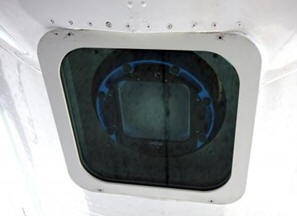|
|||||||||||||||||
|
|
|
|||
|
By |
||||
 |
March 16, 2011 - The United States and the
This historic joint mission began on Tuesday and will
continue through the 18th of this month and
will be conducted over the
This observation flight will complete a series of joint
missions conducted among |
|||
|
None of these joint flights was envisioned when the Treaty was first drafted, but improved trust gained through over 750 observation flights conducted by Treaty parties since 2002 has opened new opportunities for greater cooperation among its members.
The Treaty
on Open Skies establishes a regime of unarmed aerial observation
flights over the territories of its signatories. The Treaty is
designed to enhance mutual understanding and confidence by
giving all participants, regardless of size, a direct role in
gathering information through aerial imaging on military forces
and activities of concern to them.
Open Skies
is one of the most wide-ranging international arms control
efforts to date to promote openness and transparency in military
forces and activities. Stretching from
The |
||||

